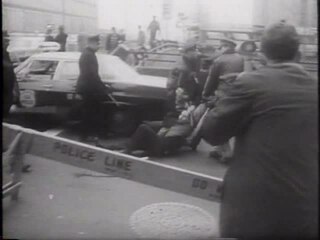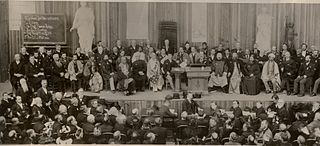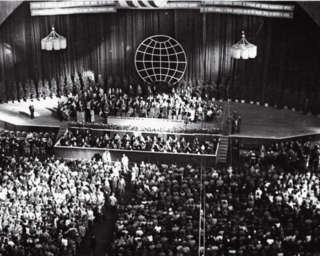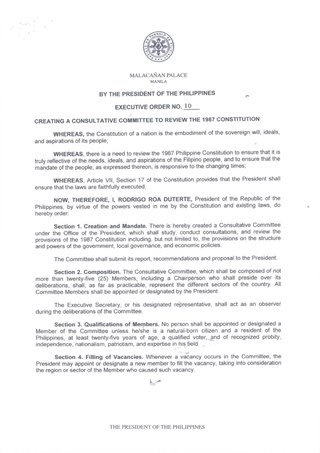
Muhammad Anwar el-Sadat was an Egyptian politician and military officer who served as the third president of Egypt, from 15 October 1970 until his assassination by fundamentalist army officers on 6 October 1981. Sadat was a senior member of the Free Officers who overthrew King Farouk in the Egyptian Revolution of 1952, and a close confidant of President Gamal Abdel Nasser, under whom he served as Vice President twice and whom he succeeded as president in 1970. In 1978, Sadat and Menachem Begin, Prime Minister of Israel, signed a peace treaty in cooperation with United States President Jimmy Carter, for which they were recognized with the Nobel Peace Prize.

The Nuremberg Rallies refer to a series of celebratory events coordinated by the Nazi Party in Germany. The first rally held took place in 1923. This rally was not particularly large or impactful; however, as the party grew in size, the rallies became more elaborate and featured larger crowds. They played a seminal role in Nazi propaganda events, conveying a unified and strong Germany under Nazi control. The rallies became a national event once Adolf Hitler rose to power in 1933, when they became annual occurrences. Once the Nazi dictatorship was firmly established, the party's propagandists began filming them for a national and international audience. Nazi filmmaker Leni Riefenstahl produced some of her best known work including Triumph of the Will (1934) and The Victory of Faith (1933), both filmed at the Nazi party rally grounds near Nuremberg. The party's 1938 Nuremberg rally celebrated the Anschluss that occurred earlier that year. The 1939 scheduled rally never came to pass and the Nazi regime never held another one as both the government and Nazi Party prioritized Germany's effort in the Second World War over everything else.

A peace walk or peace march, sometimes referred to as a peace pilgrimage, is a form of nonviolent action where a person or group marches a set distance to raise awareness for particular issues important to the walkers.

There have been several meetings referred to as a Parliament of the World's Religions, the first being the World's Parliament of Religions of 1893, which was an attempt to create a global dialogue of faiths. The event was celebrated by another conference on its centenary in 1993. This led to a new series of conferences under the official title Parliament of the World's Religions with the same goal of trying to create a global dialogue of faiths.

Mother's Day is an annual holiday celebrated in the United States on the second Sunday in May. Mother's Day recognizes mothers, motherhood and maternal bonds in general, as well as the positive contributions that they make to their families and society. It was established by Anna Jarvis, with the first official Mother's Day celebrated through a service of worship at St. Andrew's Methodist Church in Grafton, West Virginia, on May 10, 1908. Popular observances include holiday card and gift giving, churchgoing often accompanied by the distribution of carnations, and family dinners. In the United States, Mother's Day complements similar celebrations honoring family members, such as Father's Day, Siblings Day and Grandparents Day.

The World Peace Congress, founded by Professor Rajani Kannepalli Kanth in 2007, is a non-governmental organization dedicated to constructing an institutional basis for world peace, unmediated by state, government or politics. The Congress holds conferences and dialogues, regularly, attended by people with various backgrounds. These dialogues produced resolutions adopted initially at the first Congress in Salt Lake City, to ultimately achieve the goal of the Congress - to renounce war as a means of social and political policy. Later on, the World Peace Congress asked the United Nations to declare war as illegal by sending the Renunciation of War Resolution, resolutions adopted at the third World Peace Thai Congress in 2010, to UN Secretary General, Ban Ki-Moon, requesting him to ask all Heads of States of the UN to adopt the resolutions by suitably amending their individual Constitutions, or by enacting a special law by their legislatures. Since its foundation, the World Peace Congress has a wide range of participants, including Martin Almada, Shabana Azmi, A. Balasubramaniam, Roy Bhaskar, Oliver DeMille, Robert Jensen, Yinhe Li, Rajiv Malhotra, Ruth Manorama, N. Radhakrishnan, Sulak Sivaraksa, Tenzin Tethong, and John Zerzan.

The Young Communist League of Canada (YCL-LJC) is a Canadian Marxist–Leninist youth organization founded in 1922. The organization is ideologically aligned with, but organizationally independent from, the Communist Party of Canada. The organization's members played a leading role in the On-to-Ottawa Trek and made up a significant portion of the Mackenzie–Papineau Battalion, which fought on the Republican side in the Spanish Civil War.

Abdias do Nascimento was a prominent African Brazilian scholar, artist, and politician. Also a poet, dramatist, and Pan-African activist, Nascimento created the Black Experimental Theater (1944) and the Black Arts Museum (1950), organized the National Convention of Brazilian Blacks (1946), the First Congress of Brazilian Blacks (1950), and the Third Congress of Black Culture in the Americas (1982). Professor Emeritus, State University of New York at Buffalo, he was the first Afro-Brazilian member of Congress to champion black people's human and civil rights in the National Legislature, where in 1983 he presented the first Brazilian proposals for affirmative action legislation. He served as Rio de Janeiro State Secretary for the Defense and Promotion of Afro-Brazilian People and Secretary of Human Rights and Citizenship. While working as curator of the Black Arts Museum project, he began developing his own creative work (painting), and from 1968 on, he exhibited widely in the U.S., Brazil and abroad. He received national and international honors for his work, including UNESCO's special Toussaint Louverture Award for contribution to the fight against racism, granted to him and to poet Aimé Césaire in 2004. He was officially nominated for the 2010 Nobel Peace Prize.
International Peace Congress, or International Congress of the Friends of Peace, was the name of a series of international meetings of representatives from peace societies from throughout the world held in various places in Europe from 1843 to 1853. An initial congress at London in 1843 was followed by an annual series of congresses from 1848 until 1853.
The Fort Smith Council, also known as the Indian Council, was a series of meetings held at Fort Smith, Arkansas from September 8–21, 1865, that were organized by the United States Commissioner of Indian Affairs, Dennis N. Cooley, for Indian tribes east of the Rockies.

The International Council of Jewish Parliamentarians (ICJP) is a project supported by the Knesset, the World Jewish Congress, the Israeli Ministry of Foreign Affairs and the Israel Forum. Its goal is to bring together Jewish legislators and parliamentarians from around the world to engage in a dialogue of cooperation to achieve the goals of the ICJP's Mission.

A peace movement is a social movement which seeks to achieve ideals such as the ending of a particular war or minimizing inter-human violence in a particular place or situation. They are often linked to the goal of achieving world peace. Some of the methods used to achieve these goals include advocacy of pacifism, nonviolent resistance, diplomacy, boycotts, peace camps, ethical consumerism, supporting anti-war political candidates, supporting legislation to remove profits from government contracts to the military–industrial complex, banning guns, creating tools for open government and transparency, direct democracy, supporting whistleblowers who expose war crimes or conspiracies to create wars, demonstrations, and political lobbying. The political cooperative is an example of an organization which seeks to merge all peace-movement and green organizations; they may have diverse goals, but have the common ideal of peace and humane sustainability. A concern of some peace activists is the challenge of attaining peace when those against peace often use violence as their means of communication and empowerment.
A peace congress, in international relations, has at times been defined in a way that would distinguish it from a peace conference, as an ambitious forum to carry out dispute resolution in international affairs, and prevent wars. This idea was widely promoted during the nineteenth century, anticipating the international bodies that would be set up in the twentieth century with comparable aims.

Balmiki Prasad Singh was the 14th Governor of Sikkim, India. He is a retired IAS officer and has written books and articles relating to Indian culture, in particular the culture of North-East India. Among his prominent books are Bahudha and the post 9/11 World and The problem of change: a study of North East India.
The International Congress of Women was created so that groups of existing women's suffrage movements could come together with other women's groups around the world. It served as a way for women organizations across the nation to establish formal means of communication and to provide more opportunities for women to ask the big questions relating to feminism at the time. The congress has been utilized by a number of feminist and pacifist events since 1878. A few groups that participated in the early conferences were The International Council of Women (ICW), The International Alliance of Women (IAW) and The Women's International League for Peace and Freedom (WILPF).

The World Congress of Intellectuals in Defense of Peace was an international conference held on 25 to 28 August 1948 at Wrocław University of Technology. It was organized in the aftermath of the Second World War by the authorities of the Polish People's Republic and the Soviet Union, and aimed against American imperialism.

The Madrid Conference of 1991 was a peace conference, held from 30 October to 1 November 1991 in Madrid, hosted by Spain and co-sponsored by the United States and the Soviet Union. It was an attempt by the international community to revive the Israeli–Palestinian peace process through negotiations, involving Israel and the Palestinians as well as Arab countries, including Jordan, Lebanon and Syria.

The Ukrainian People's Republic (UPR), or Ukrainian National Republic (UNR), was a country in Eastern Europe that existed between the years 1917 and 1920. The country was first declared following the February Revolution in Russia, by a state political act called the First Universal of the Ukrainian Central Council. In March 1917, the National Congress in Kyiv elected the Central Council of Ukraine, which had been composed of socialist parties that held the same principles as the Russian Republic. The republic's autonomy was recognized by the Russian Provisional Government. Following the October Revolution, the Ukrainian People's Republic proclaimed its independence from the Russian Republic, on 22 January 1918, by the Fourth Universal.

Executive Order No. 10 was signed on December 7, 2016, by Philippine President Rodrigo Duterte which created a consultative committee to review the 1987 Constitution of the Philippines. The move officially set in motion the process for amending the 30-year-old charter and set up a federal system of government in the Philippines aimed at ending the Moro conflict and further opening up of the Philippine economy.














